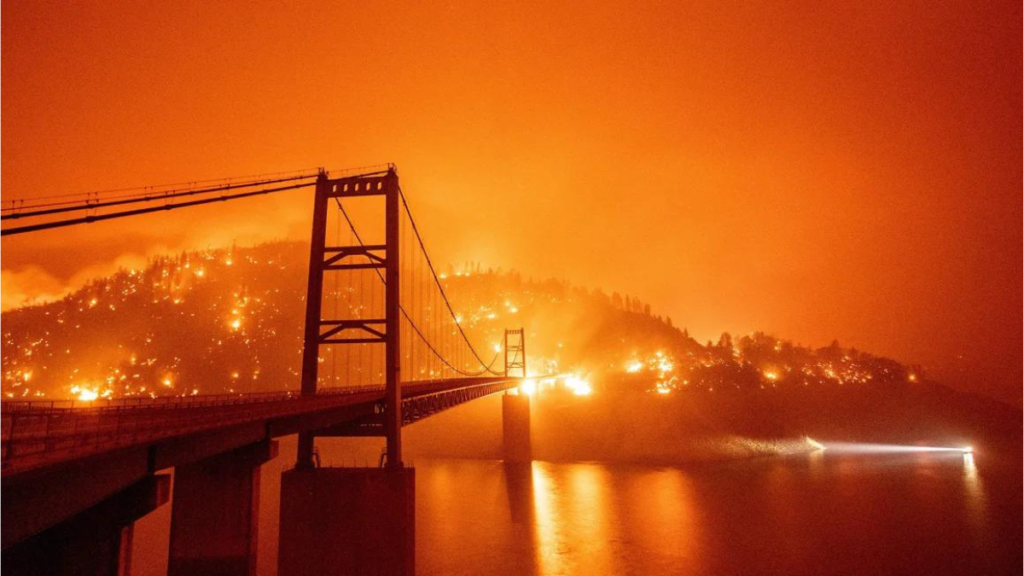The World Meteorological Organization (WMO) has released a report revealing that the past decade (2011-2020) has been the hottest on record for the planet’s land and oceans. This alarming surge in climate change, driven by rising concentrations of planet-heating pollution, has far-reaching consequences, including record temperatures, glacier loss, and sea-level rise. The report highlights the alarming rise in methane levels, which nearly doubled, raising alarms about its potent contribution to the greenhouse effect. The report also highlights the worldwide increase in climate pollution from various fossil fuel sources, with coal and oil emissions surged in India and China, while the United States and the European Union exhibited declines in coal emissions. The report warns that at the current rate of emissions, there is a 50% chance of global temperatures regularly exceeding the critical threshold of 1.5 degrees Celsius in approximately seven years. The report also provides a glimmer of hope by stating that the ozone layer is on track to recovery, highlighting the importance of concerted global action.
Record-Breaking Trends
The report points to a disturbing trend of escalating climate change impacts over the past ten years. Notably, the year 2023 is anticipated to be the hottest on record, marking six consecutive months of record global temperatures. This exceptional warmth is attributed to a combination of El Niño and human-caused climate change fueled by fossil fuel pollution.
The Global Carbon Project’s separate analysis, released on Monday, further emphasized the severity of the situation, projecting a 1.1% increase in carbon pollution from fossil fuels in 2023 compared to 2022 levels.
Methane Emerges as a Concern
While all planet-heating gases experienced an overall increase during the past decade, the WMO report highlights the particularly concerning rise in methane levels. The growth rate of methane nearly doubled, raising alarms about its potent contribution to the greenhouse effect.
Global Carbon Emissions Landscape
The Global Carbon Project’s findings underscore the worldwide increase in climate pollution from various fossil fuel sources. Coal and oil emissions surged significantly in India and China, while the United States and the European Union exhibited declines in coal emissions. Natural gas emissions increased in the US, China, and India but decreased in the EU.
Decades-Long Warming Trend
The WMO report emphasizes a concerning pattern that spans the last 30 years. Each decade since the 1990s has consistently been warmer than the previous one, with no immediate signs of this trend reversing. Secretary-General Petteri Taalas stresses the urgency of curbing greenhouse gas emissions to prevent climate change from spiraling out of control.
Implications for Global Temperatures
Researchers warn that, at the current rate of emissions, there is a 50% chance of global temperatures regularly exceeding the critical threshold of 1.5 degrees Celsius in approximately seven years. This temperature, a crucial goal of the Paris climate agreement, poses significant challenges for human adaptation and ecosystem resilience.
Climate Shocks and Ongoing Threats
The WMO report points to the evident impact of climate change on food security and widespread displacement globally. Particularly alarming is the “profound transformation” occurring in polar regions and high mountains, where melting glaciers and ice sheets are rapidly disappearing. Taalas notes, “We are losing the race to save our melting glaciers and ice sheets.”
Ozone Layer Recovery as a Silver Lining
Amidst the concerning findings, the report provides a glimmer of hope by stating that the ozone layer is on track to recovery, thanks to international efforts to phase out ozone-depleting chemicals. This positive development underscores the importance of concerted global action.
Challenges at COP28
The release of the WMO report coincides with the ongoing COP28 climate summit, where the focus on energy and industry underscores the crucial role of fossil fuels in driving the climate crisis. Pierre Friedlingstein from the University of Exeter emphasizes the urgent need for rapid cuts in fossil fuel emissions to meet the goals set by the Paris Agreement.
Conclusion
As the COP28 summit grapples with the complex issue of the future role of fossil fuels, the WMO report serves as a stark reminder of the urgent need for decisive and immediate action. The impacts of climate change are evident, and global leaders must prioritize rapid reductions in greenhouse gas emissions to mitigate the worst consequences and safeguard the planet’s future.







